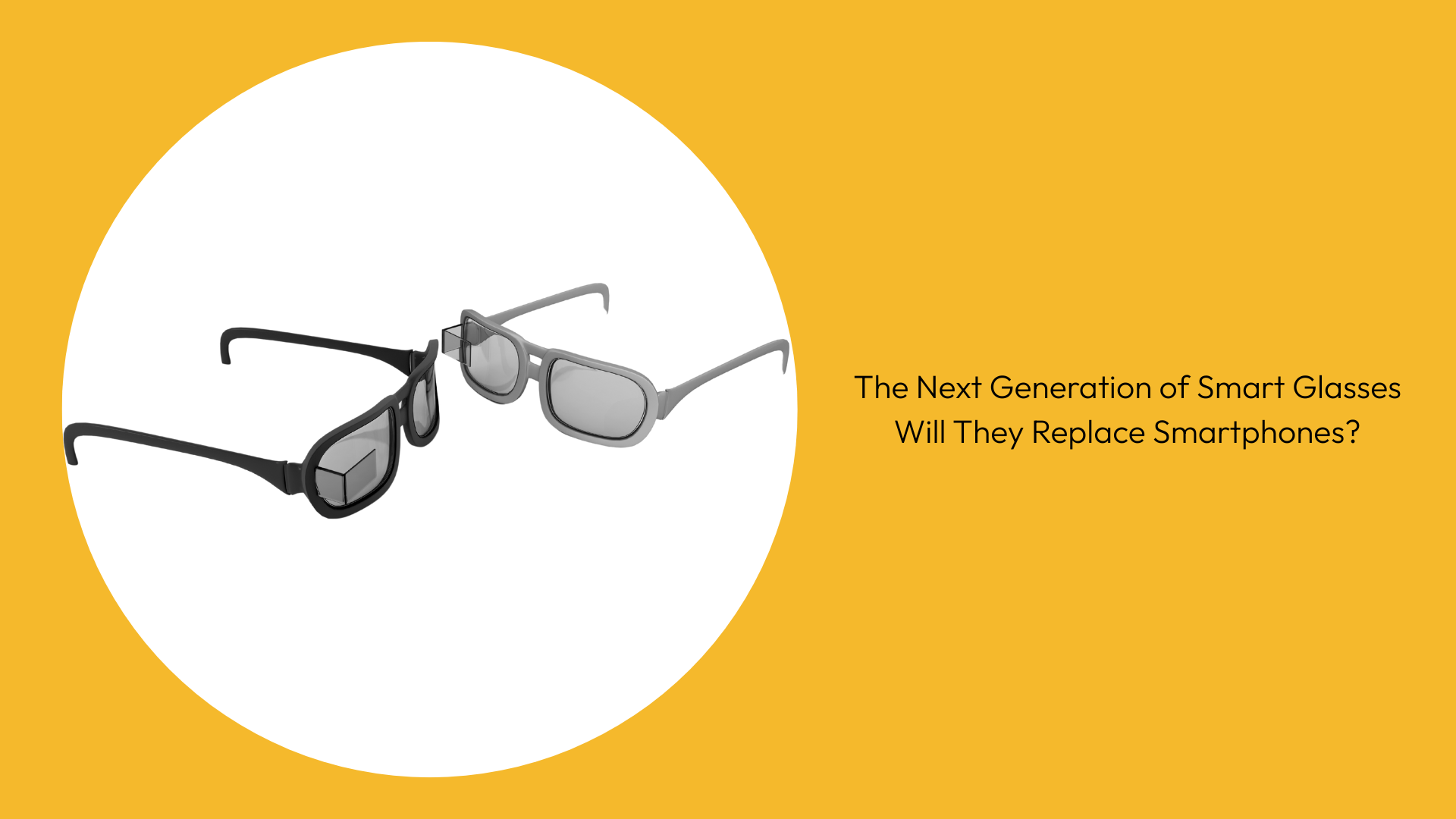Smart glasses have progressed from Google Glass to advanced AR-powered wearables like Apple Vision Pro and Meta Ray-Ban Smart Glasses. With AI integration, augmented reality (AR), and hands-free controls, many tech giants are betting that smart glasses could eventually replace smartphones.
But is this realistic? Will we soon ditch our phones for face-worn tech, or is this another tech fad? Let’s explore.
How Smart Glasses Are Evolving
The first wave of smart glasses, like Google Glass (2013), failed due to privacy concerns, limited functionality, and poor design. But today’s next-gen smart glasses offer:
🕶 Sleek, stylish designs – No more bulky, sci-fi-looking headsets.
🎥 Built-in AI assistants – Devices like Meta’s Ray-Ban Smart Glasses now have real-time AI-powered vision.
🌎 Augmented Reality (AR) – Overlays digital content in the real world (ex, Apple Vision Pro, Microsoft HoloLens).
📞 Hands-free communication – Call, text, and navigate with voice commands.
🎬 Live Streaming & Recording – Capture photos and videos instantly.
These upgrades are making smart glasses more practical for everyday use.
Can Smart Glasses Replace Smartphones?
To replace smartphones, smart glasses need to match or surpass key smartphone features, such as:
✅ Display & Interaction – AR glasses project a virtual screen, but will it be as good as a phone’s display?
✅ Battery Life – Current smart glasses only last a few hours, unlike phones that last all day.
✅ Performance – Can glasses handle apps, gaming, and multitasking as efficiently as a smartphone?
✅ Affordability – Apple Vision Pro costs $3,499, while smartphones are more accessible.
✅ Privacy & Social Acceptance – Not everyone always wants a camera on their face.
Verdict: While smart glasses won’t fully replace smartphones anytime soon, they could complement or even reduce dependence on phones within the next decade.
The Future of Smart Glasses: What’s Next?
🚀 AI-Powered Glasses – Smart glasses will get smarter, using AI to understand surroundings, translate languages, and provide real-time information.
🌎 Seamless AR Integration – Future smart glasses may replace laptops, TVs, and even phone screens with immersive AR experiences.
🔋 Better Battery Life – Companies are working on longer-lasting, energy-efficient designs.
💰 More Affordable Options – As technology improves, prices will drop, making smart glasses mainstream.
⏳ Timeline for Smartphone Replacement? – Experts predict that by 2035, AR smart glasses could replace many smartphone functions, but a complete switch will take longer.
Final Thoughts: A Supplement, Not a Replacement (Yet)
Smart glasses are getting brighter, lighter, and more powerful, but still have limitations. While they won’t fully replace smartphones shortly, they could eventually take over tasks like texting, calling, navigation, and web browsing—making phones less essential.
🚀 The Big Question: Would you ditch your smartphone for smart glasses? Why or why not?
Let us know your thoughts!

